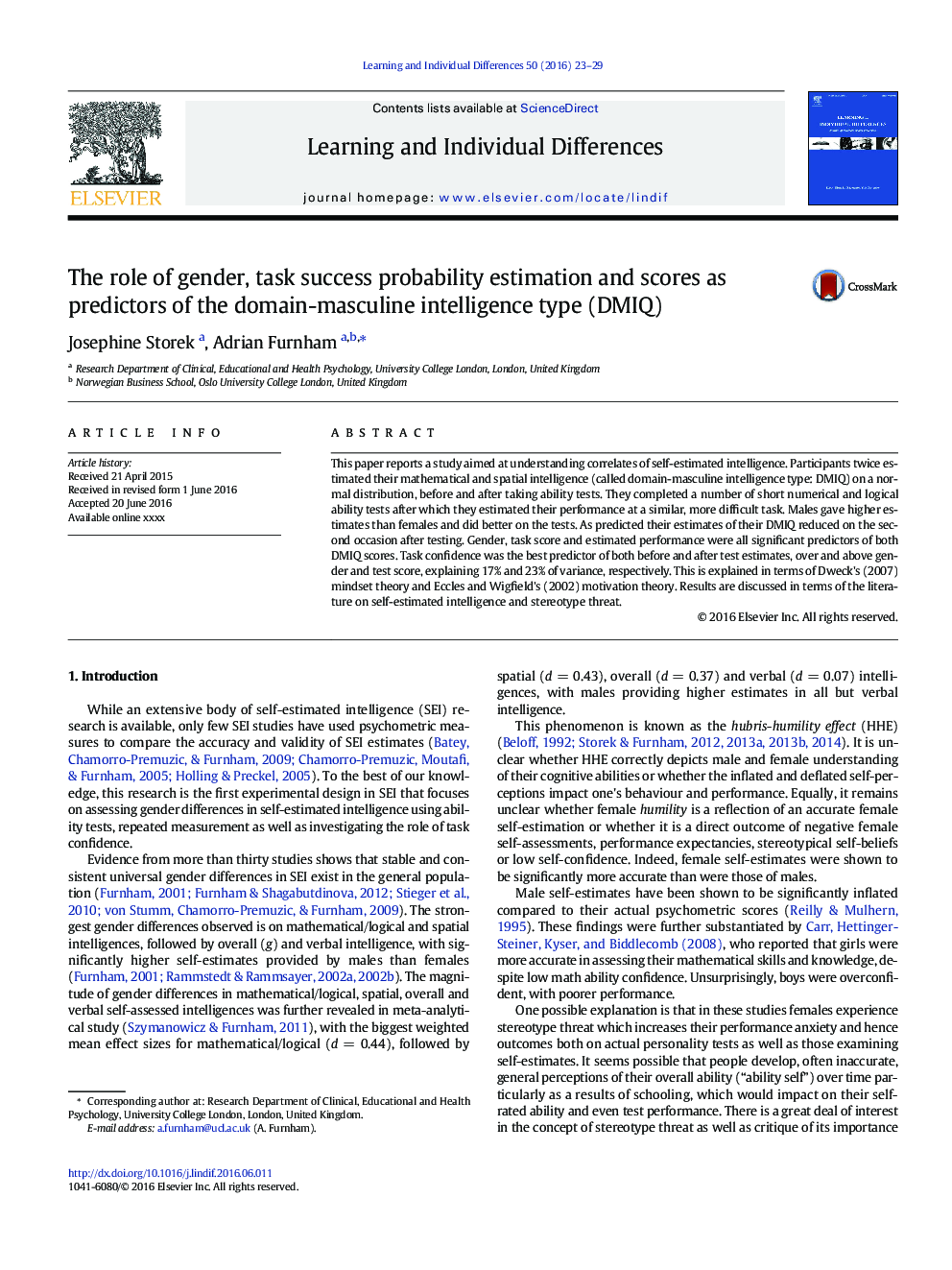| Article ID | Journal | Published Year | Pages | File Type |
|---|---|---|---|---|
| 364473 | Learning and Individual Differences | 2016 | 7 Pages |
•Participants twice estimated their mathematical and spatial intelligence.•They completed various ability tests after which they estimated their performance at a similar, more difficult task.•Males gave higher estimates than females and did better on the tests.•Gender, task score and estimated performance were all significant predictors of both estimates.•Task confidence was the best predictor of both before and after test estimates.
This paper reports a study aimed at understanding correlates of self-estimated intelligence. Participants twice estimated their mathematical and spatial intelligence (called domain-masculine intelligence type: DMIQ) on a normal distribution, before and after taking ability tests. They completed a number of short numerical and logical ability tests after which they estimated their performance at a similar, more difficult task. Males gave higher estimates than females and did better on the tests. As predicted their estimates of their DMIQ reduced on the second occasion after testing. Gender, task score and estimated performance were all significant predictors of both DMIQ scores. Task confidence was the best predictor of both before and after test estimates, over and above gender and test score, explaining 17% and 23% of variance, respectively. This is explained in terms of Dweck's (2007) mindset theory and Eccles and Wigfield's (2002) motivation theory. Results are discussed in terms of the literature on self-estimated intelligence and stereotype threat.
